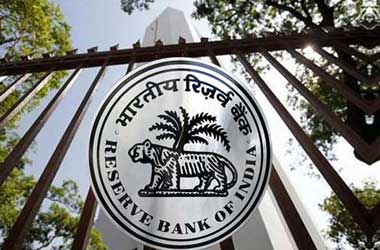Greece Receives €7.5 billion In First Tranche Of Bailout Package
 The first tranche of the €86 billion bailout approved by Greece’s creditors was formally released last week.
The first tranche of the €86 billion bailout approved by Greece’s creditors was formally released last week.
The rescue package which is the third such bailout for the country was signed off last year after numerous rounds of discussion.
Greece’s Prime Minister Alexis Tsipras said that the payment of €7.5 billion would help create a stable economic environment within the country.
The bailout was approved after it was determined that Greece had made enough progress on its fiscal policy front to be eligible for further aid.
According to Klaus Regling, head of the European stability mechanism which is in charge of the Athens’ bailout payments, stated that the money would be received by Greece within a week. The payment was authorized by Eurozone finance ministers last week during the first comprehensive review of the country’s financial situation after its rescue last year.
euronews Business
In a statement Pierre Moscovici EU’s economic affairs commissioner said,
We have arrived at the end of a road that has been long and difficult. This €7.5 billion of aid [provides] oxygen for the Greek economy and hope for the Greek people
Stock markets in the country reacted positively to the news, moving up by 3.9 percent. The money would enable the country to pay its imminent debt obligation of €3.5 billion due to the European Central Bank next month.
Critics have however said that the bailout package does not resolve Greece’s economic situation. Most of the bailout money is going to be used for repaying debt and government arrears instead of rebuilding its economy. Mujtaba Rahman, the chief analyst at the Eurasia Group risk consultancy said that the money will have no impact on the real economy as the country’s debt obligation for the remaining year itself amounts to €7.2 billion.
Experts predict growing discontent within the country as the tough cuts imposed by the country’s government in exchange for receiving the bailout start taking effect. Public demonstrations are already being held demanding the resignation of the current government.
Polls show that there is an increasingly lack of trust in the government, with only 1 in 10 Greeks believing that the current government was capable of leading the country out of its current state.
The next round of aid amounting to around €2.8 billion is linked to the government carrying out further changes including labor market reforms which are likely to run into stiff opposition from the country’s unions, indicating tumultuous times ahead for the country.
Related Articles
Bundesbank Chief Warns Of Threat To London’s Financial Industry
Jens Weidmann, the president of Germany’s central bank Bundesbank stated that Britian’s move to exit the European Union (EU) would
Demonetization Strains RBI And Central Government Relationship
The recent demonetization exercise is said to have strained the relationship between India’s Reserve Bank of India (RBI) and the
FCA Refuses To Publish Report On RBS Controversial Restructuring
The Royal Bank of Scotland (RBS) has received a lot of negative publicity in the last couple of years as



